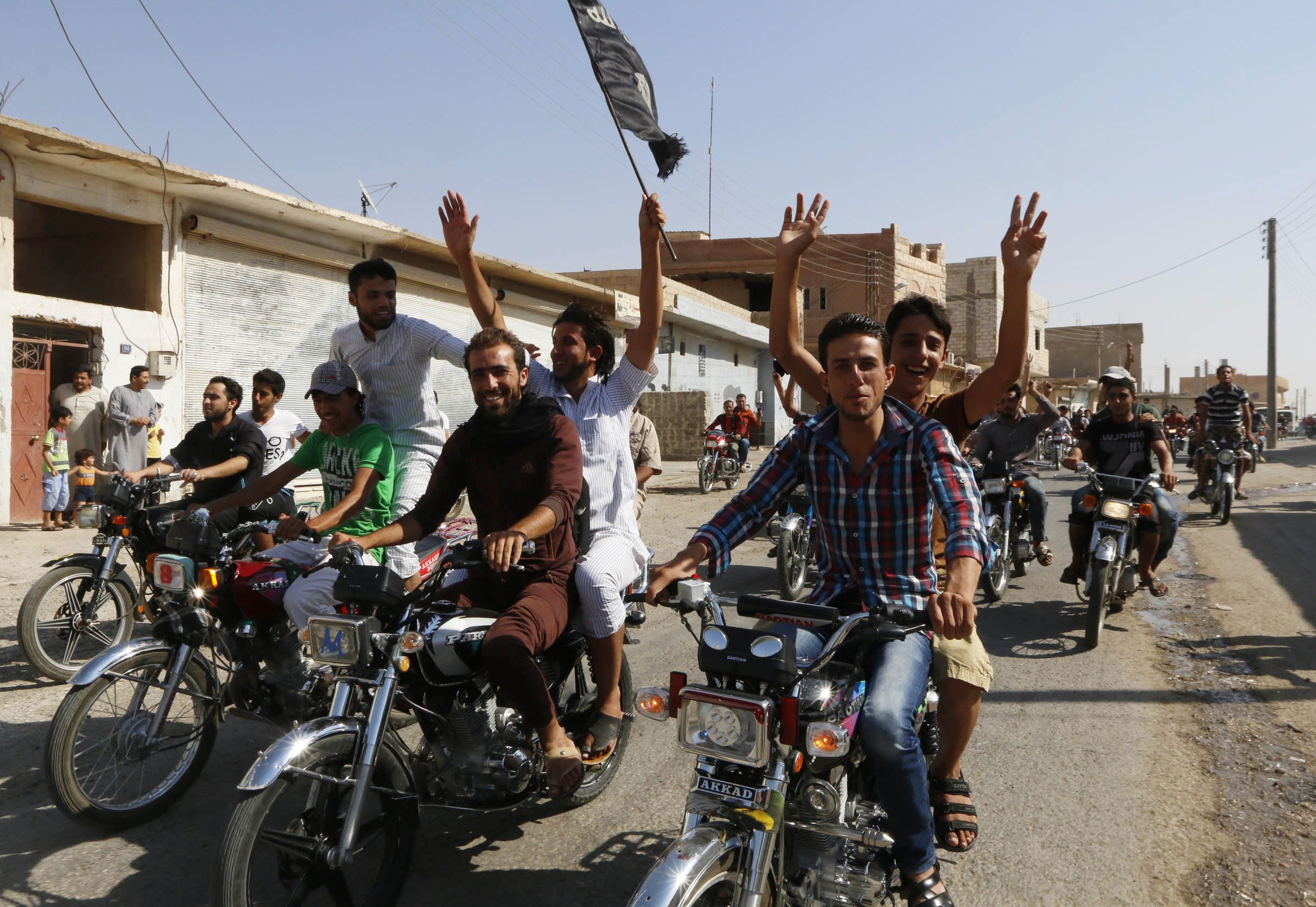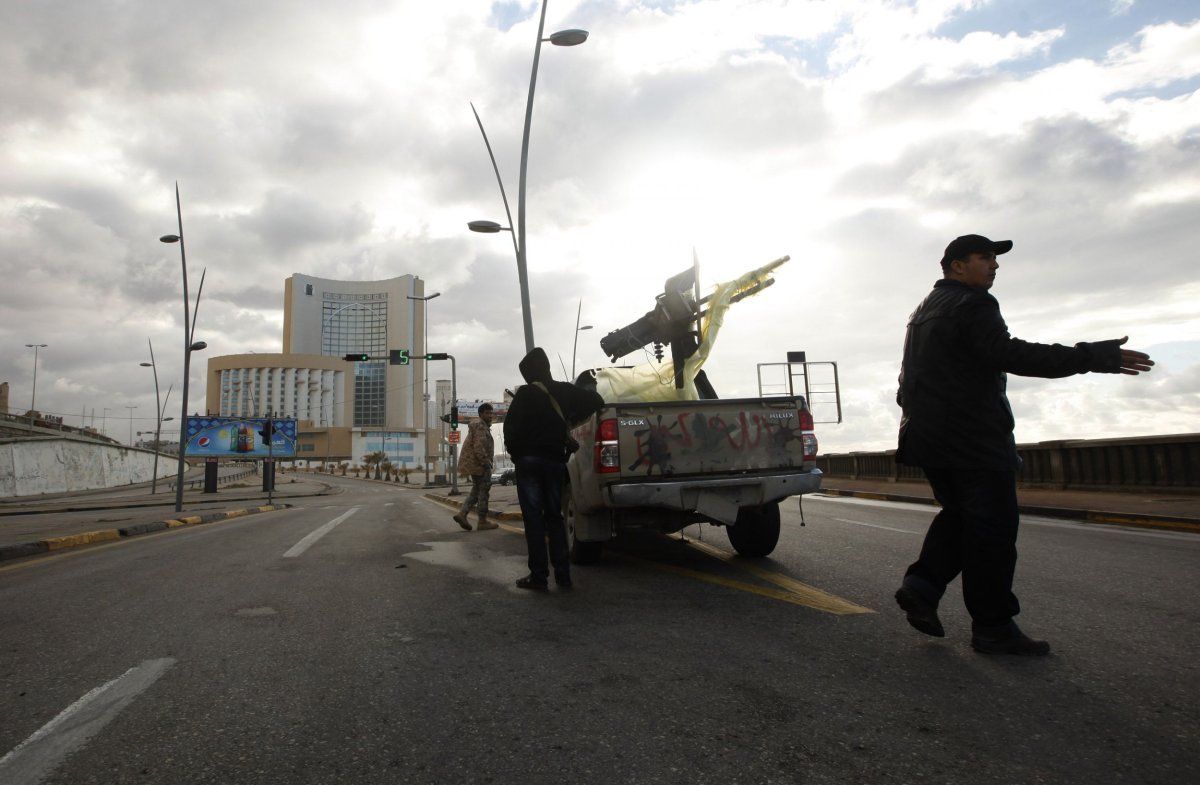
The Islamic State's (ISIS) brand, sealed by the creation of its self-proclaimed caliphate in Iraq and Syria, is spawning a number of affiliate radical jihadist groups outside the territory it currently controls, projecting the terror group's power across the Middle East and beyond.
Within the last month, an ISIS branch in Tripoli has launched an assault against foreign nationals at the Corinthia hotel in the Libyan capital; former Tehreek-i-Taliban Pakistan (TTP) militants have announced the creation of a province in the historical region of Khorasan along the Afghan-Pakistani border; and at least 30 people were killed in the northern Sinai Peninsula in a car bomb and mortar attack carried out by the renamed IS-affiliated group 'Sinai Province'.
In addition to these attacks, ISIS affiliates have sprung up in North Africa and South Asia. Soldiers of the Caliphate in Algeria, Sons of the Call for Tawhid and Jihad in Jordan and Abu Sayyaf in the Philippines have all pledged allegiance to the terror group while IS-linked terror cells have been foiled in Belgium, Morocco, Israel and the occupied West Bank.
It is also believed that an ISIS network, known as 'Islamic State in Gaza' is forming in the blockaded enclave, funnelling radicalised Palestinians onto the battlefield in Iraq and Syria, although Hamas denies any ISIS presence in the territory.
Last week, giving testimony before the U.S. House of Representatives Armed Services Committee, the director of the Defense Intelligence Committee, Lt Gen Vincent Stewart warned of the group's growing "footprint" in a number of power vacuums in North Africa.
"With affiliates in Algeria, Egypt, Libya, the group is beginning to assemble a growing international footprint that includes ungoverned and under governed areas," he said.
In order to join these jihadist affiliates and align with ISIS, many fighters are defecting from rival organisations - such as al-Qaeda and the Pakistani Taliban. Al-Qaeda is so concerned by the expansion of ISIS's influence across the Middle East that its leader Ayman al-Zawahiri created a new branch in the Indian Subcontinent, targeting the almost half a billion Muslims who reside in Pakistan, India and Bangladesh.
However, many of the ISIS affiliate groups are small-scale 'startups' that wish to boost their standing by piggybacking on ISIS's brand name, says Judith Jacob, terrorism analyst at geopolitical risk consultancy the Risk Advisory Group.
"They are fairly small, less well-established organisations, although they may comprise fighters that have belonged to bigger groups before," she says.
"On a much bigger level, if you're a new organisation and you say that you're affiliated with ISIS, you also get the brand name. It's a massive draw that you are part of something much bigger and far more intimidating than anything you yourself could probably do."
While some affiliates - such as IS Tripoli in Libya - have heeded ISIS's call for attacks on Western interests, others appear to be using the ISIS name but not deviating from their original aims or ideologies. For example, the spokesman of the Filipino group Bangsmoro Islamic Freedom Fighters (BIFF) announced that the group had formed an alliance with ISIS but would not seek to impose the group's interpretation of Islam in the country.
Also, in the Sinai Peninsula, Sinai Province's "targeting patterns have not changed" since they pledged allegiance to ISIS, says Jacob, but rather they continue to target domestic symbols of authority, such as the Egyptian security forces, as opposed to foreign interests.

Last summer, the group swept across northern Syria and northern and western Iraq, capitalising on the instability of the four-year-long Syrian Civil War and the disenfranchisement of Iraqi-Sunnis to capture large swathes of territory, including Iraq's second-city of Mosul and the Syrian city of Raqqa, now the caliphate's de-facto capital.
But the group and its offshoots have also made important moves outside of the caliphate. IS Barqa in Libya seized the coastal town of Derna, which is situated just 200 miles from Europe's southern shores last November; an ISIS 'emir' has been appointed in Lebanon with the aim of beginning military operations in the country; and evidence that former Taliban commanders are recruiting fighters for the group in Afghanistan's Helmand Province has surfaced.
Experts believe it is this consolidation of territory that has fostered ISIS's magnetic brand, enticing radicalised Muslims to join their ranks and not those of rival jihadist organisations.
"Bin Laden once said 'people always flock to the strongest horse', I definitely think that's true among jihadists," says Max Abrahms, professor of political science at Northwestern University and a member at the Council on Foreign Relations. "At first, al-Qaeda was the big brand and everyone wanted to be part of that and then ISIS grew relative to that."
"The real reason that the Islamic State has been so successful at attracting members has been its success on the battlefield," he concludes.
Yet, Hassan Hassan, analyst at the Abu Dhabi-based Delma Institute and co-author of a new book on ISIS's rise, claims it is predominantly ideological reasons - specifically the idea of a universal caliphate - which attracts would-be jihadists to further the group's cause in other areas of the Muslim world.
"There is the caliphate, as an idea," Hassan says when asked why these affiliates are forming. "ISIS can penetrate this because it can present a project that has actually achieved the nexus of the caliphate [by its capture of territory]. So people who believe in the caliphate and are electrified by the idea can say 'this is a project and I can go and contribute to this project'."
"For these groups in different areas across the Muslim world, they think that ISIS is the way to get there [to the caliphate]," he adds.
What the jihadists flocking to affiliate themselves with ISIS outside of the caliphate do not realise is that the situation on the ground is very different to how it is portrayed on the group's media channels, according to Hassan.
"People outside the region are detached from the reality on the ground, so they tend to hear what ISIS says and hear what ISIS does and are more susceptible to their propaganda," he adds. "Social media comes in handy, especially for people outside Syria and Iraq. They are not corrupted by facts on the ground."
The social media factor in ISIS's rise is often trumpeted but analysts dispute the significance of this in comparison with the group's progress on the battlefield. The production and circulation of their gruesome hostage videos, the latest being the burning of Jordanian pilot Moaz al-Kasasbeh, have certainly gained the group notoriety in the Western world. In this respect, the group have outclassed their jihadist rivals, presenting themselves as current as opposed to a group such as al-Qaeda, who are viewed by younger radicals as outdated.
Nonetheless, while ISIS's social media operation will likely continue unabated, Abrahms predicts that the number of the group's fighters "will plummet" because the "real driver of members is the outcome of battles".
ISIS has experienced rapid success on the battlefield but, in the last month alone, it has lost a 300-mile tract of territory to Kurdish peshmerga forces - backed by U.S.-led coalition air strikes - in northern Iraq and been ousted from the Syrian city of Kobane, a defeat which punctured their aura of invincibility.
Despite these setbacks in Iraq and Syria, the group's expansionist slogan baqiyya wa tatamaddad ("remaining and expanding") appears to ring true for the time being as brand ISIS - forged by the creation of the Iraqi-Syrian caliphate - reaches beyond the frontiers of its territory, attracting fighters and, as in the case of the attack on the Corinthia hotel in Tripoli in which nine people were killed including one American and one French citizen, cost lives.
Uncommon Knowledge
Newsweek is committed to challenging conventional wisdom and finding connections in the search for common ground.
Newsweek is committed to challenging conventional wisdom and finding connections in the search for common ground.
About the writer
Jack is International Security and Terrorism Correspondent for Newsweek.
Email: j.moore@newsweek.com
Encrypted email: jfxm@protonmail.com
Available on Whatsapp, Signal, Wickr, Telegram, Viber.
Twitter: @JFXM
Instagram: Read more
To read how Newsweek uses AI as a newsroom tool, Click here.








